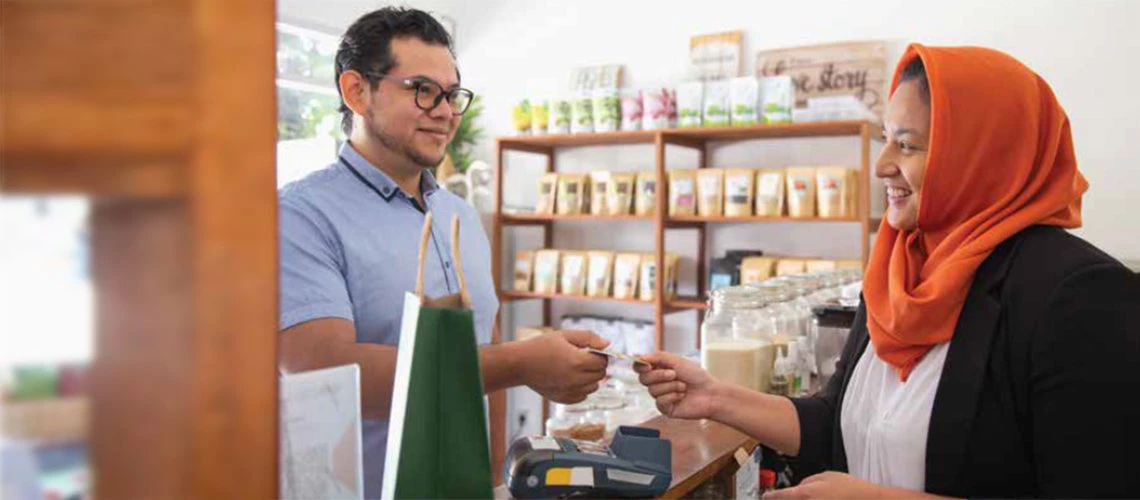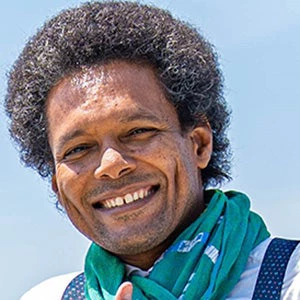 Women entrepreneurs in Indonesia
Women entrepreneurs in Indonesia
If revenues of female-owned businesses increased to those comparable to male-owned firms, Indonesia’s economy could unlock more than US$428 million annually. If the female labor force participation rate increased to 58 percent, which is Indonesia’s G20 commitment, GDP growth could increase by 0.7 percent and add US$62 billion to the economy.
Indonesia is facing a stubborn gender gap in its economy. Persistent gender challenges and obstacles have inhibited the country from translating these “if scenarios” into a reality. Due to gaps such as unpaid care work, occupational gender segregation, discrimination in male-dominated sectors, and limited access to finance and capital, women have struggled to grow their involvement in the private sector, whether as employees or entrepreneurs. The COVID-19 pandemic worsened these gaps, as 1.3 million women left the workforce due to lost employment and closed businesses.
These constraints underline the stagnation in Indonesia’s female labor force participation, with the rate hovering at around 50 percent for the past 25 years , alongside unpredictable growth of women’s businesses. Even though Indonesia has a strong presence of female entrepreneurs — with women owning and operating more than 50 percent of micro, small, and medium enterprises— growth potential remains limited. Compared with male counterparts, female entrepreneurs have lower levels of business assets, a greater concentration in low-productive sectors, a stronger reliance on savings, and half the amount of start-up capital to start and grow their business.
Sustainable, blended, public and private mobilization is needed to unleash this surge of economic and social dividends into the market if Indonesia is to transform these economic estimations from scenarios to realities.
But how can this be done? The good news is there is growing momentum to act from the Government, civil society organizations (CSOs), the private sector, and the public sector. In recent years, Indonesia has taken clear steps through private and public interventions to address these existing challenges. Interventions by the Ministry of Women’s Empowerment and Child Protection in financing, coaching, and digital capacity building have translated into reductions in the country’s Global Gender Gap Index, reducing the gap by 7 percentage points from 2019 to 2022. As the chair of the G20 Empower group, Indonesia spearheaded public-private collaboration to accelerate actions in support of women’s leadership and empowerment in startups, investment management, and rural business communities. Complementing these actions, business associations such as the Indonesian Businesswomen Association (IWAPI) and the Indonesian Employer’s Association (APINDO), alongside CSOs such as Women’s World Banking, continue to empower women in the economy through responsive programming, collaborative policy dialogue, and inclusive advocacy engagements.
To support these ongoing actions, the World Bank is collaborating with both private and public actors to monitor progress and foster policy dialogue toward building an enabling environment for growth of women's small and medium enterprises (WSMEs).
As a result of these engagements, the World Bank’s Finance Competitiveness and Innovation team (FCI) has just completed the Opening Opportunities Report and has launched the interactive Indonesian Women in SMEs Dashboard. The report is a joint effort between FCI and the Gender Innovation lab that reviews binding constraints to female entrepreneurship in Indonesia. It also provides recommendations to improve the business environment for WSMEs. The interactive dashboard is a one-stop-shop referencing World Bank reports focused on gender and gathering new data. It is an interactive, open, and living platform, aggregating results of collaborative efforts, and acting as a virtual convener for the actions. This will be a useful tool to monitor progress on key indicators related to female economic participation and support policy dialogue in the country.
Rina Zoet, former co-chair of G20 Empower and coordinator of IWAPI and one of the main focal points for both pieces of work shares her thoughts on the gap filled by these initiatives in boosting public-private collaborative efforts.





Join the Conversation